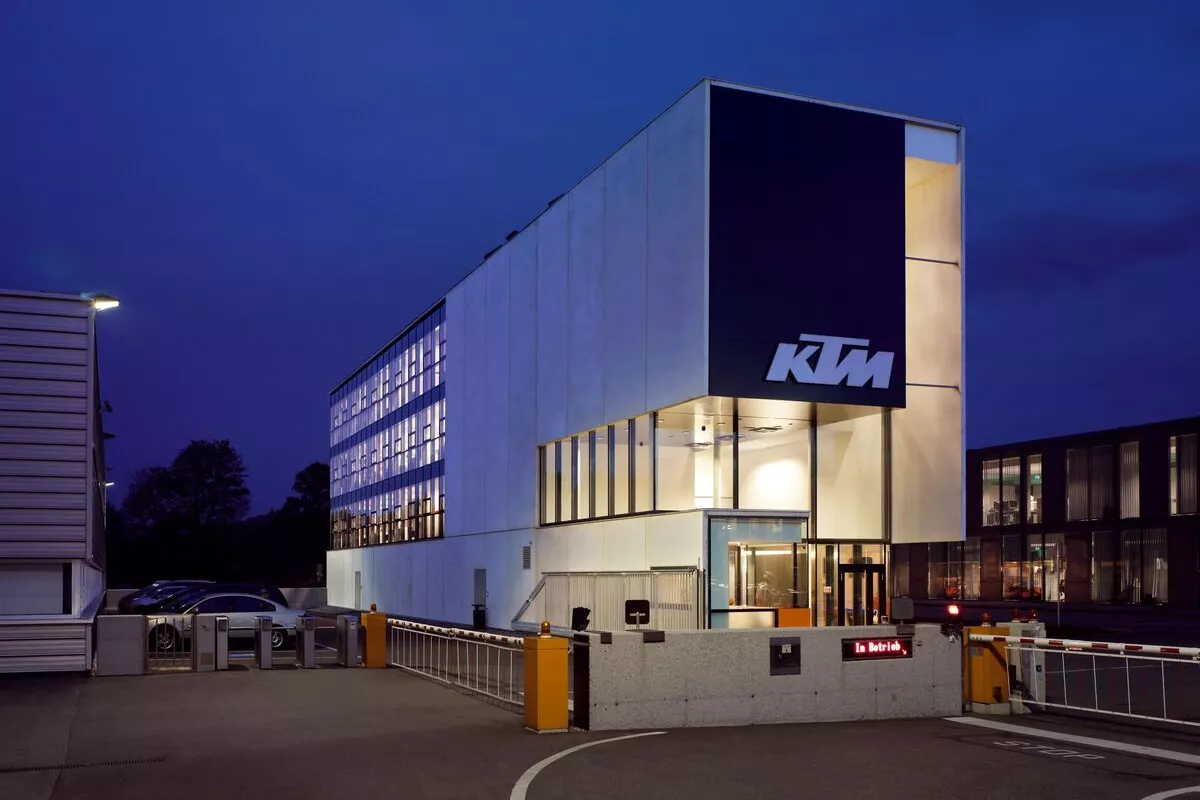Technology
Bajaj Takes Control of KTM: Major Restructuring Underway

Bajaj Auto has received approval from the Austrian Takeover Commission to take control of **Pierer Mobility AG**, the parent company of **KTM AG**, marking a significant shift in the motorcycle industry. Following this transition, Bajaj has promptly rebranded Pierer Mobility AG to **Bajaj Mobility AG**. This change signifies not only a new name but also a sweeping restructuring plan aimed at revitalizing the troubled motorcycle manufacturer.
In a recent interview with **CNBC-TV18**, Rajiv Bajaj, Managing Director of Bajaj Auto, outlined the company’s strategy to cut overhead costs by more than **50 percent**. This reduction will impact various areas, including research and development, marketing, and operational functions. Bajaj expressed criticism of the previous management’s decisions, highlighting the excessive headcount reduction from **6,000 to 4,000 employees**, with a disproportionate number of white-collar workers remaining. He stated, “Interestingly, of these 4,000, only about 1,000 are blue-collar; 3,000 are white-collar, which is perplexing because the blue-collar employees make the motorcycles.”
Addressing the restructuring, Bajaj indicated that the current workforce issues stem from mismanagement rather than the employees themselves. He emphasized that the majority of the problems originated from the former leadership, many of whom are no longer with the company. This candid assessment reflects Bajaj’s intention to overhaul the company’s operations as it navigates a challenging market.
The announcement of significant layoffs, particularly among white-collar staff, has raised concerns within the motorcycle community. The impact on KTM’s **MotoGP program** is particularly worrying, as competitors like **Ducati** and **Aprilia** continue to advance their development efforts. KTM’s RC16 has already faced setbacks this year, with factory riders experiencing persistent tire issues and chassis challenges that hinder performance on the track.
Further complicating matters, KTM plans to cease motorcycle production at its subsidiary **GasGas** in **Girona, Spain**, shifting operations to its facility in **Mattighofen, Austria**. A spokesperson for KTM stated, “This allows us to consolidate our expertise, optimize production processes, and strengthen efficiency within the company.” While the company claims that only **20** of the **300 employees** at the Girona factory will be directly affected, uncertainty remains for the rest of the workforce.
Production delays are also a pressing concern, with the **2025 model year 1390 Super Duke GT** not expected to commence until at least **2027**. Bajaj lamented the state of European manufacturing, stating bluntly, “To put it very simply and bluntly, European manufacturing is dead.” In contrast, he noted that models produced and exported from India offer an **EBITDA margin** of “over **30 percent**,” highlighting the financial advantages of shifting production.
In an additional collaboration, Bajaj has partnered with **Triumph** to manufacture its newly launched **400cc models**. Bajaj pointed out that Triumph has successfully produced motorcycles in India and Thailand for over a decade, prompting questions about why KTM could not adopt a similar approach.
The restructuring aims to restore profitability and efficiency to KTM, but it also signifies a period of uncertainty for the company’s factory riders and engineers. As the company embarks on this new path, the long-term effects on its performance and market position will unfold in the coming months. The motorcycle community will be watching closely as Bajaj Auto implements these changes in an effort to salvage KTM’s reputation and competitive edge.
-

 Top Stories1 month ago
Top Stories1 month agoRachel Campos-Duffy Exits FOX Noticias; Andrea Linares Steps In
-

 Top Stories1 week ago
Top Stories1 week agoPiper Rockelle Shatters Record with $2.3M First Day on OnlyFans
-

 Top Stories6 days ago
Top Stories6 days agoMeta’s 2026 AI Policy Sparks Outrage Over Privacy Concerns
-

 Sports5 days ago
Sports5 days agoLeon Goretzka Considers Barcelona Move as Transfer Window Approaches
-

 Top Stories1 week ago
Top Stories1 week agoUrgent Update: Denver Fire Forces Mass Evacuations, 100+ Firefighters Battling Blaze
-

 Top Stories1 week ago
Top Stories1 week agoOnlyFans Creator Lily Phillips Reconnects with Faith in Rebaptism
-

 Top Stories5 days ago
Top Stories5 days agoWarnock Joins Buddhist Monks on Urgent 2,300-Mile Peace Walk
-

 Entertainment6 days ago
Entertainment6 days agoTom Brady Signals Disinterest in Alix Earle Over Privacy Concerns
-

 Top Stories1 week ago
Top Stories1 week agoOregon Pilot and Three Niece Die in Arizona Helicopter Crash
-

 Top Stories4 days ago
Top Stories4 days agoCBS Officially Renames Yellowstone Spin-off to Marshals
-

 Health2 months ago
Health2 months agoTerry Bradshaw Updates Fans on Health After Absence from FOX NFL Sunday
-

 Sports4 days ago
Sports4 days agoSouth Carolina Faces Arkansas in Key Women’s Basketball Clash



